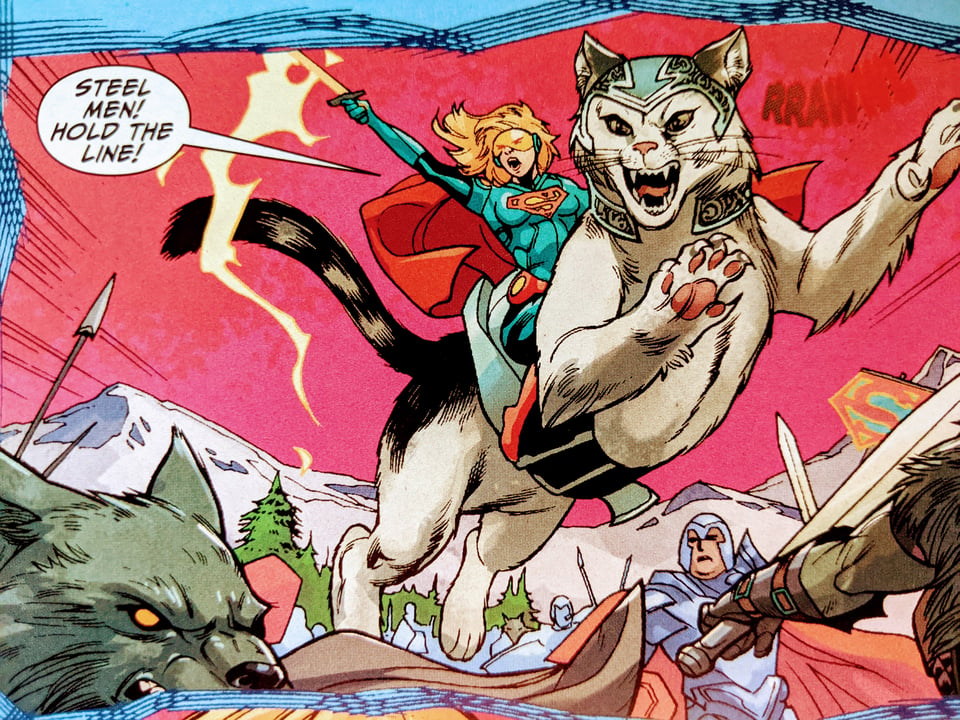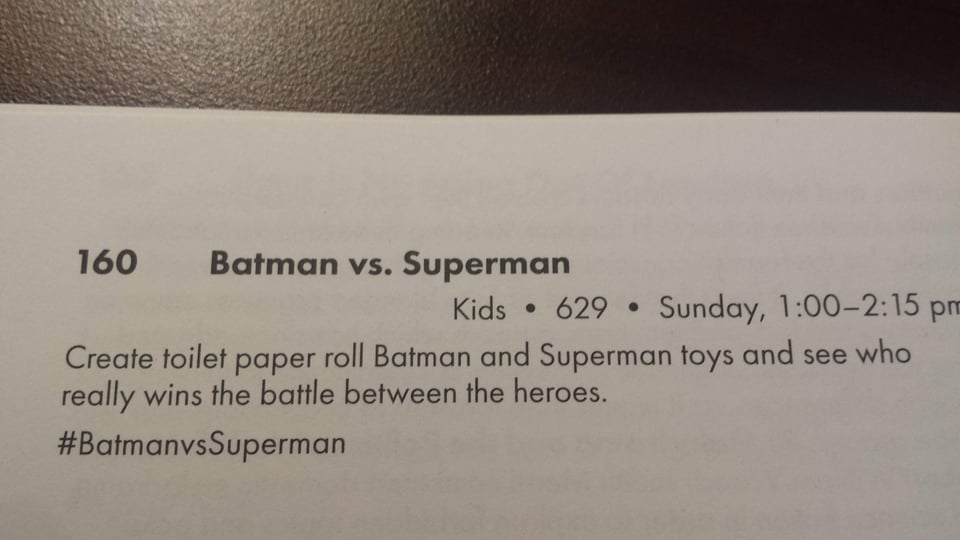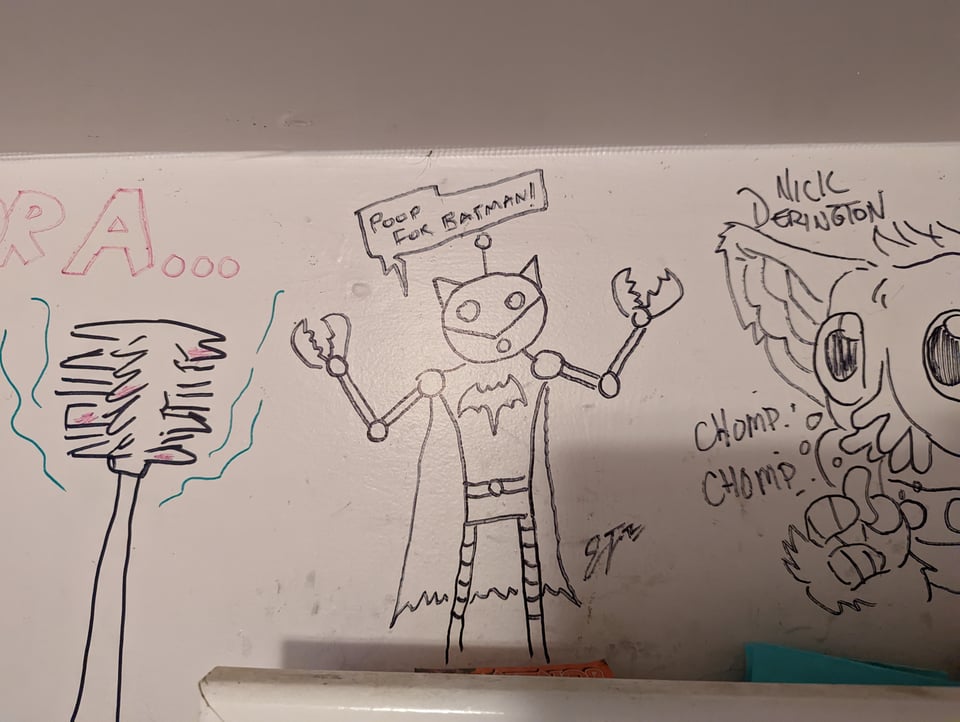We Don't Need More Industry Consolidation
Just a quick reminder. I’m going to be in a bunch of places this coming week:
Tomorrow I’ll be in the Koret Auditorium at the SF Public Library talking about banned books for Litquake.
Thursday I’ll be at the Lost Church talking about queer magic (with Michelle Tea et al) for Litquake.
Saturday I’ll be at StoryFest in Westport, CT
Tuesday 10/21 I’ll be a visiting writer at Colorado College
You can still get my new book Lessons in Magic and Disaster in all the places! Including Green Apple: I’ll sign, personalize, and doodle-ize your copy.
Let’s hope this latest merger doesn’t happen
The next two years of the entertainment industry will be "chaos," featuring a wave of "consolidation, buying, sales, potentially bankruptcies," and only the biggest corporations will be able to survive. That's the warning that Tony Vinciquerra, outgoing CEO of movie studio Sony Pictures Entertainment, issued back in September 2024.
The wave of consolidation has certainly begun, now that former FTC chair Lina Khan is no longer pumping the brakes. David Ellison's Skydance Media finalized its purchase of Paramount Pictures recently. And already, the new Skydance-owned Paramount has its sights on acquiring another huge fish: Warner Bros. Discovery, a which only just went through a massive merger back in 2022. Over the weekend, it was reported that WBD rejected an offer of $20 a share from Paramount, on the grounds that it was too low.
If Paramount does succeed in buying WBD in the end, consolidation will have reached a new peak. We'll have one fewer major movie studio. And a few power players would have much more power over what gets made going forward.

To find out more about how a Paramount-WBD merger could affect Hollywood, I spoke to Lisa Laman, box office pundit, movie critic, freelance writer (hire her!) and co-host of the terrific Box Office Podcast.
Warner Bros. has had a fantastic 2025
Not long ago, Warner Bros. "was just a punchline," says Laman. They released some high-profile duds like Joker 2, Kevin Costner's Horizon, and The Flash. As recently as March 2025, Warners released a flop called Alto Knights, "with two Robert DeNiros." And then the comeback began.
It started with Minecraft, which is still the year's biggest movie domestically. There followed Sinners, a new Final Destination, F1, Superman, Weapons, a new Conjuring film, and finally One Battle After Another‚ which is the year's best-reviewed movie and is at least doing well overseas.
"It really has become an amazing, oh-my-god year, and a lot of it has been based on original films for adults like Weapons and Sinners," says Laman. Studio heads Pam Abdy and Michael DeLuca made a number of "interesting, potentially risky bets that paid off."
And next year's slate includes Emerald Fennell's Wuthering Heights, Maggie Gyllenhaal's The Bride!, and a new untitled Alejandro González Iñárritu film starring Tom Cruise.
"They're putting their money where their mouth is," says Laman. "We're coming back to the days of, like, Alfonso Cuarón can make Gravity here. Spike Jonze can make Where the Wild Things Are here. This is a place for artists to make movies."
We've already lost a major studio
From Laman's standpoint, Hollywood is already in trouble because of Disney's acquisition of 21st Century Fox back in the late 2010s.

After Disney's purchase of Fox closed in March 2019, says Laman, there was a "death of a thousand cuts, to quote one T. Swift." Disney initially forecast about $2 billion in savings, which translated to widespread job losses at Fox, and many of Fox's best people headed for the exits.
In January 2020, Fox lost Emma Watts, "who used to run their Fox 2000 Division, which was responsible for Hidden Figures and Love Simon," says Laman. In February 2021, Disney shuttered Blue Sky Studios, the animation studio that made the Ice Age movies. And Fox, which had produced 15 to 18 movies a year, had its out put reduced to just three films in 2023.
Worst of all, from Laman's perspective, Fox was no longer making films like Hidden Figures or The Hate U Give. Now, "Fox is only really useful as an apparatus to exploit Alien, Predator‚ and other brands that already existed. The Simpsons, Avatar, the X-Men, etc." And Disney has one fewer competitor to worry about.
"I don't think the Disney-Fox merger really resulted in anything tremendously positive for the studio," Laman says.
There just aren't enough movies for theaters
Annual box office receipts have been consistently in recent years (despite a Barbenheimer-fueled uptick in 2023.) Many pundits blame covid and associated changes to consumer behavior — but Laman insists that the problem isn't that people don't want to go to the movies. Rather, there just aren't enough movies being released now that Fox is gone.
"It is 100% a supply issue," Laman says. "Why are we down 20% at the box office? It's because we have 20% less films. A lot of that is from Fox being gone, and even Paramount and Sony reducing their annual output."
Consider the example of June 2025, when only six major movies came out, including the underwhelming M3GAN 2.0 and Ballerina. Laman contrasts this with June 2013, when White House Down was a box-office bomb. The difference was that back then, we had The Heat, The Purge and World War Z to pick up the slack. Now, when a Ballerina tanks because nobody wanted a John Wick movie without John Wick, there's no alternative in the marketplace.
The outlook: even fewer movies — and fewer big swings
The other day, David Ellison told a conference that Paramount would do "more, not less," if they bought Warner Bros. — meaning that the amount of movies being made would increase, not decrease.
But Laman is skeptical, based on the history of past mergers like Disney-Fox. "I don't care what Ellison says, they are not going to keep Warner Bros. producing 16 movies a year, and Paramount also doing 12 movies a year."

No major studio has produced 28 movies a year since the long-ago heyday of Disney owning Touchstone Pictures and Hollywood Pictures. Already, Paramount has promised to ramp up its own standalone output to 20 films a year — but Laman says the studio has announced very few films for 2026 so far.
And even if Paramount follows through on this promise to release a whopping 20 films a year, it seems unlikely they would "double down on that strategy" if they also owned Warner Bros., Laman argues.
The likely outcome of a Paramount-Warners merger, instead, would be a much harder time for the movie industry, and especially for already-struggling theaters.
And Paramount's upcoming slate is heavy on IP like Mortal Kombat, Street Fighter‚ Scream and Scary Movie. Paramount just announced plans to create a cinematic universe around the aging Call of Duty video game franchise. "Maybe their hope is that [Call of Duty is] a nostalgia thing?" Laman says.
Skydance, she adds, has shown a heavy focus on blockbusters to the exclusion of other types of movies. "They're not interested in awards season films or adult dramas. They are interested in Guy Ritchie-Chris Pratt movies." So you might see a lot fewer films like Sinners or One Battle After Another if this merger goes through.
WBD already has a plan
Warner Bros., after countless disastrous mergers since the days of Time Warner, is loaded up with an excess of debt and saddled with fading cable networks.
But now, the company has a plan to split into two companies once again. The Warner Bros. movie studio and HBO Max will become one company, referred to as Streaming & Studios. A separate entity, called Global Networks, will take on the money-losing cable channels and most of the $37 billion in debt.
In other words, Warner Bros. will shed two millstones around its neck, leaving behind a healthy company — if all goes according to plan. (Which is a big “if”.)
Reportedly, Skydance wants to buy all of WBD, not just the movie studios and the streaming service, so they are rushing to make an offer before this split happens. If they obtain the whole company in its current form, Ellison and his conservative father, Oracle CEO Larry Ellison, could potentially control CNN along with CBS News.
You can't beat Netflix
"I've been hearing for the last ten years that every company has just been like, 'We've got to bulk up,'" says Laman. "And it always has struck me, and especially in the last few years, as pointless. Do David and Larry Ellison think that if they suddenly own Batman and Superman, they're suddenly going to be equal to Netflix?"
"I want to tell every CEO: You can't beat Netflix,” Laman adds.

Netflix has established the kind of dominance over streaming that Google enjoyed for years over internet search, she adds. Netflix has first-mover advantage, and has already harnessed the kind of customer data and brand loyalty that Silicon Valley dreams of.
And say what you want about Netflix, it's mostly grown by creating new properties like Stranger Things, The Witcher, and K-Pop Demon Hunters, instead of rushing to buy other companies for their IP.
In fact, Netflix was briefly rumored as a potential buyer of Warner Bros. But at a conference last week, Netflix co-CEO Greg Peters shot down the idea, saying: "We come from a deep heritage of being builders rather than buyers."
Peters added: "One should have a reasonable amount of skepticism around big media mergers. They don’t have an amazing track record over time."